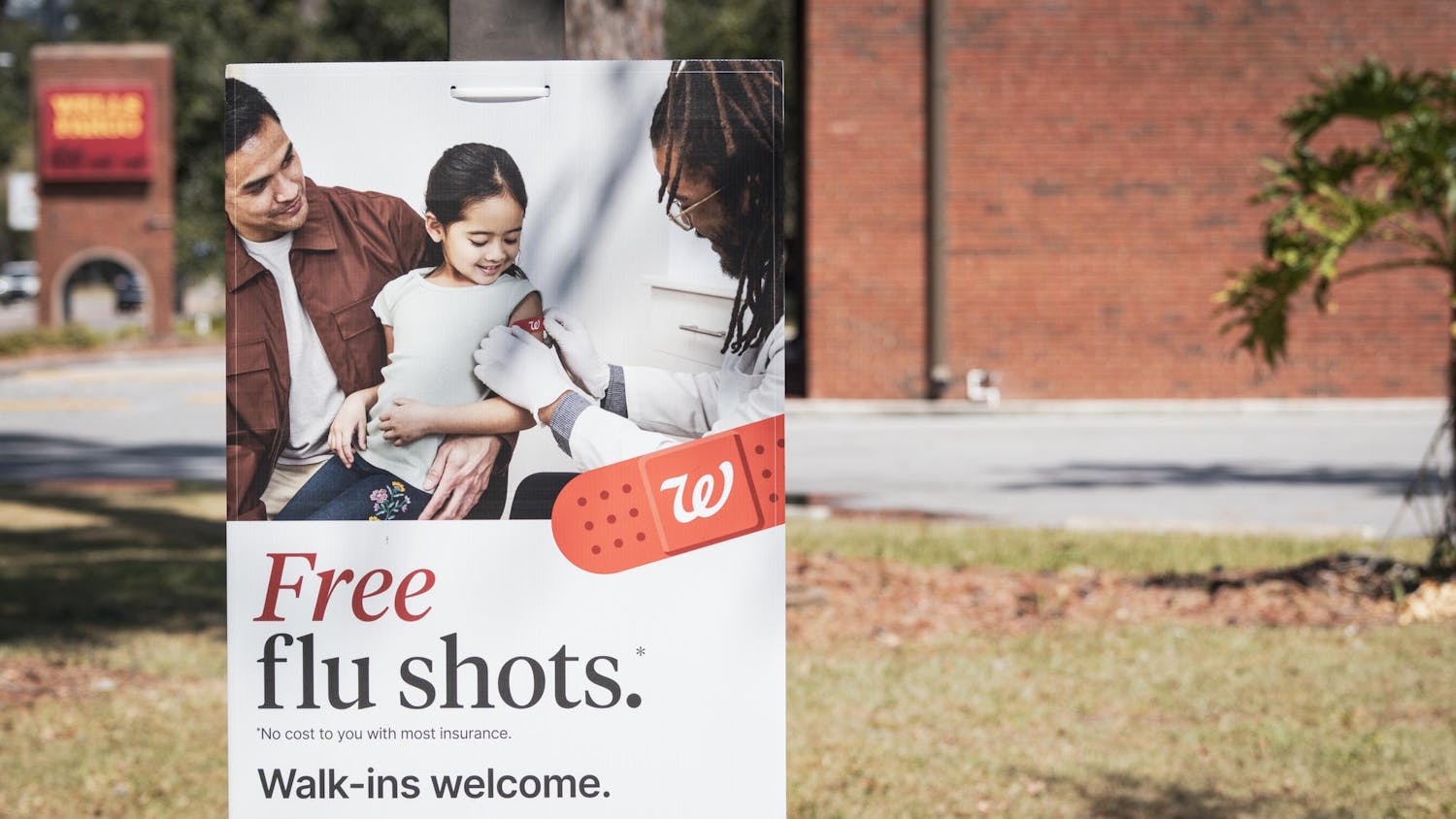Skyler Cuevas vividly remembers seeing a parent’s face light up as their child received specialized tutoring through the UF chapter of Children Beyond Our Borders. Now, as the president of the chapter, Cuevas and her team are adapting to the changes COVID-19 brought them and the migrant families they serve.
“Being able to offer these services and letting them know that we are here for them every week to continue helping them with their children’s education was memorable,” Cuevas said.
Before COVID-19, the migrant families of Alachua County received in-person help from a group of special volunteers affiliated with Children Beyond Our Borders (CBOB). One program within CBOB, Libros de Familia, is dedicated to closing the education gap for children of new migrant families.
A group of Colombian UF students that first focused on helping Colombian children later founded the non-profit organization in 2003. After over a decade, CBOB extended its emphasis from Colombia to children worldwide with the hope that education could empower all children.
“Our main goal is equating education to the empowerment of the Latino community,” Cuevas said. “If you have any connection with a minority group, you should take them into account in any way you can.”
In Gainesville, the CBOB UF chapter helps local children with tutoring services and scholarships.
Joel Hernandez, the coordinator of UF’s Libros de Familia, is in charge of maintaining the program and connecting UF student volunteers with migrant families in the county.
Before COVID-19, volunteers tutored in the migrant child’s home or at a local library and established a close relationship with families. Some CBOB tutors went out of their way to build stronger relationships with these children by spending time with them outside the tutoring setting — some children, who had never been to the beach, would end up visiting them with their Libros de Familia tutors.
Now, those relationships are difficult to maintain due to the struggles many families and their children face because of the pandemic, such as virtual learning.
The School Board of Alachua County’s Spring 2021 COVID-19 response plans allowed students to return to classes with measures in place to keep students safe. Still, many children of migrant families struggle with studying virtually.
“Imagine you are a student who doesn't know English, and you are falling behind because you need to learn English; on top of that, you need to take a class to learn the language,” Hernandez said. “Additionally, if you are someone who moves from place to place, you are not receiving an educational experience [equal to] what other students receive.”
Hernandez also emphasized that most parents don't speak English and don't know how to use the required technology for their children to study virtually. The Zoom app is frequently used in schools, and Libros de Familia volunteer students often need to teach the parents how to connect their children online.
“One big problem has been Wi-Fi connection. It seems so simple to us, but some of them can’t pay for good Wi-Fi or simply don't have it,” Cuevas said.
It wasn’t until the recent American Rescue Plan Act of 2021 that more immigrant families became eligible for stimulus payments, including H-2A and H-1B visa holders that many migrant families qualify under. However, any migrants that file with an Individual Taxpayer Identification Number (ITIN) do not qualify for stimulus checks.
For families in need of help, CBOB offers a scholarship program to children and is expanding its fundraising efforts to include migrant families in need of technology to continue their online tutoring efforts.
The Alachua Migrant Education Program, a program funded under Alachua County Public Schools, assists the county’s migrant population by informing CBOB of any families that request tutoring for their children.
“It’s almost a symbiotic relationship because UF volunteers are enriched by meeting these families,” said Victoria Gomez de la Torre, supervisor of Alachua County’s Migrant Education Program. “And it’s like changing countries the moment you get to these houses.”
Gomez dedicated herself to helping children and migrant families 15 years ago after graduating with a master’s in Latin American studies from UF.
She said part of the struggle migrants face is housing insecurity since the start of COVID-19. According to a Florida Department of Health in Alachua 2020 inspection report, 22 out of 65 migrant labor camps were in unsatisfactory conditions in 2020.
“It has affected the migrant population because they live in very rural areas, they mostly work in fields and don’t necessarily listen to the news,” Gomez de la Torre said. “They are people who, for obvious reasons, aren’t on the radar or the health departments, nor any entity that works with the COVID-19 problem.”
According to the Florida Department of Health in Alachua, between 150,000 and 200,000 agricultural migrant farmworkers and seasonal farmworkers and their families work and travel annually in Florida. Many of them arrive to work with their families, including their children living in residential camps in different fields in North Florida.
“Nobody has them as part of their state population, so nobody takes them into account when making decisions during the pandemic,” Gomez de la Torre said.
Contact Isabella Barnet at ibarnet@alligator.org.

Isabella Barnet is a fourth-year telecommunication student at the University of Florida. She is a proud Miami native and Cuban-Peruvian working as the editor of El Caimán. You can find her working on personal film projects, practicing Hispanic dishes, and catching sunsets at Paynes Prairie.






